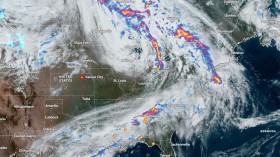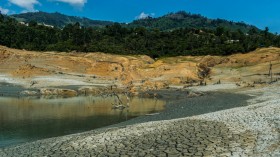In their latest report Climate Change 2021 (August, 2021), the United Nations' Intergovernmental Panel on Climate Change (IPCC) has warned that climate change "is widespread, rapid, and intensifying," with new trends more irreversible than in the recent past. Rising sea levels, for instance, can be considered "irreversible" for millennia ahead, with the world currently about to exceed the internationally agreed threshold of 1.5ºC above pre-industrial global warming levels. UN Secretary-General, Antonio Guterres has warned that "We must act decisively now to avert a climate catastrophe." Actions to take include reducing our carbon (and other greenhouse gas) footprint so as to significantly improve air quality in the next two to three decades.
The significance of the IPCC Report
The IPCC Report is world-renowned owing to its use of over 14,000 studies to come to its conclusions. Just a few conclusions reached by scientists include the fact that human actions are very likely the main reason for the global reduction in glaciers. Human influence is also a likely factor in the warming of the global upper ocean, the rise in the global mean sea level, and changes in the land biosphere. Indeed, the report has found that the global surface temperature has increased faster since 1970 than in any other 50-year-period in history.
Individual Action Matters
It is easy to feel overwhelmed by the overwhelmingly negative data obtained regarding the influence of human beings on climate change. The IPCC provides policymakers with adaptation and mitigation options but the UN is also adamant that individuals and businesses make key changes - in particular, the adoption of an environmental management strategy, avoiding unnecessary printing, recycling, using public and/or sustainable transport (or incentivizing it in the case of businesses), reducing energy consumption, and following a sound renewable energy strategy. For individuals, this can mean investing in solar energy - a technology that entails a significant investment but which also saves over $100 in potential savings monthly.
Sustainability, Events, and Leisure
We can also take the necessary steps to celebrate green weddings and events, as well as support companies (including hotels and resorts) that adhere to green principles. The average wedding, for instance, has a whopping carbon footprint of 63 metric tons of CO2. This can be reduced by having a micro wedding (a current trend in the industry), choosing pre-loved dresses and accessories, and relying on local suppliers. They can also rely on eco-friendly venues like ecolodges, bio-resorts, and eco-friendly hotels with firm policies regarding aspects such as renewable energy and water savings.
Policymakers Need to Act
On a larger scale, policymakers need to follow the recommendations set out by the IPCC if disaster is to be avoided. As stated by the U.S. Special Presidential Envoy for Climate, John Kerry, "The impacts of the climate crisis, from extreme heat to wildfires to intense rainfall and flooding, will only continue to intensify unless we choose another course for ourselves and generations to come." The IPCC has stated that countries need to make "rapid and extensive" transitions in cities, land, energy, industry, buildings, and transport. CO2 emissions need to be reduced by around 45% from 2010 levels by 2030, achieving 'net zero' by 2050.
The IPCC has warned that the world is far from reaching its goals with respect to climate change. Changes need to be made on a large scale for human beings to achieve 'net zero' emissions of CO2 by 2050. Success can only be achieved by a united effort between policymakers, businesses, and individuals.
© 2024 NatureWorldNews.com All rights reserved. Do not reproduce without permission.
* This is a contributed article and this content does not necessarily represent the views of natureworldnews.com






